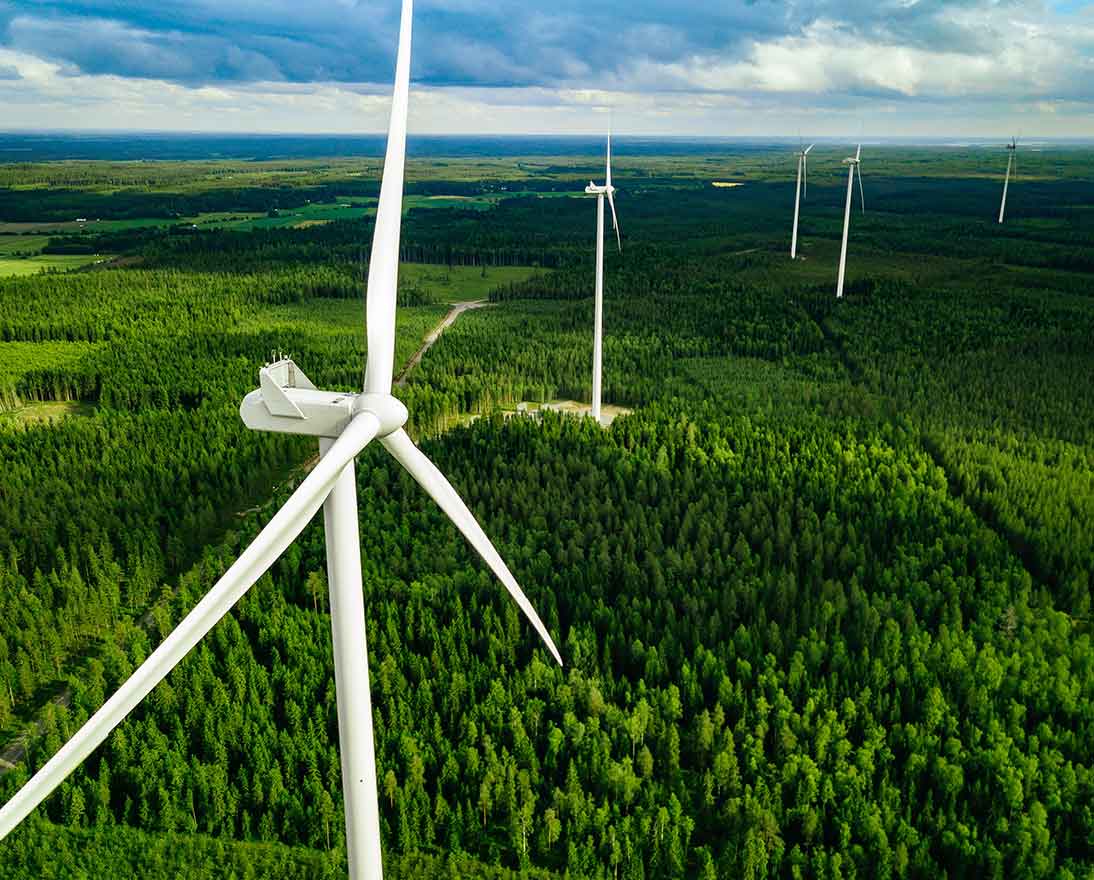
Leaders with Lacqua Goes Green: Ferrari CEO Benedetto Vigna on the firm’s sustainability ambitions
Ferrari’s path to carbon neutrality: in an era where sustainability concerns are an increasing priority for luxury consumers, iconic brands are redefining what luxury means. Watch the latest episode of Leaders with Lacqua Goes Green, sponsored by Zurich Insurance Group.
Sustainability concerns are increasingly motivating consumers everywhere. And luxury brands are taking note. At the same time, the typical profile of a luxury buyer is also on the move. As Ferrari S.p.A. (Ferrari) CEO Benedetto Vigna explains to Francine Lacqua in an interview for the “Leaders with Lacqua Goes Green” series, a Ferrari driver is more likely to be a woman under 40 and based in Asia-Pacific than ever before: “40 percent of our new clients are younger than 40 years old.”
China, Korea and Taiwan are key markets and women make up over a quarter of buyers of new and pre-owned Ferraris in China. So-called Gen Z consumers, those born between the mid-90s and early 2010s, are increasingly a buying force to be reckoned with in the luxury goods space. A report published by Bain and Positive Luxury found that this cohort of consumers accounted for the growth in luxury spending in 2023. And not only are they buying luxury goods at a younger age, they are also rewarding brands that have a positive sustainability story.
Redefining luxury
Luxury brands, by definition, are not necessities. So how do they fit into a world where consumers are more conscious about what they consume? This poses a quandary for many luxury brands, including Ferrari, a powerful brand associated with roaring engines.
“We are always looking at three dimensions: the design, the technology performance, and also the driving emotion,” Vigna explains. “A luxury company makes an emotional product, a symbolic product, not a functional product.”
For luxury brands, a key step in this evolution is redefining what luxury is. Ferrari now defines luxury as “exclusivity, rarity and longevity underpinned by a commitment to innovation.” The firm says its goal is to make enough, but not too much. Keeping volumes restricted supports scarcity and heightens desirability, and it’s an approach that appears to be working: some Ferrari cars have a three-year waitlist.
An electric future
Ferraris are already going electric, and consumers are buying. Across the world, demand is rising for luxury electric vehicles: the market is forecast to grow at a compound annual growth rate of more than 17.7 percent between 2023 and 2030. In 2023, hybrid Ferraris outsold conventional ones for the first time and the firm predicts approximately 60 percent of car sales will be either fully electric or hybrid by 2026.
Ferrari fans wanting fully electric cars are facing a longer wait. The company has decided to scale up its electric innovation in-house and is developing its own battery technology, electric motors, battery packs and power inverters. Ferrari’s first fully electric model is expected to be ready by 2025.
For Vigna, a physicist by training who has reportedly registered over 200 patents, building in-house expertise is important. “We decided we wanted to handle the battery, engine, electronics and then the assembly of the car in house,” Vigna explains, adding that they choose what to focus on internally based on two criteria: competence and speed. Ferrari has been tight-lipped about the specifics of its forthcoming electric model, but rumors are the new electric vehicles will still roar thanks to speakers to enhance the sound. Vigna wouldn’t offer details but added: “I can tell you this: it's going to be unique.”
Driving change in supply chains
But while electric vehicles will be a key part of Ferrari’s future, it is taking a holistic approach to decarbonization across its supply chain. “Becoming green is important for our social license,” Vigna says.
The iconic car brand has committed to going carbon neutral by 2030 across its entire value chain, while also addressing direct and indirect greenhouse gas emissions. In 2022, Ferrari implemented a raft of initiatives to achieve a 5 percent reduction in energy consumption per car. This included a 1MW fuel cell plant and photovoltaic system in Maranello to power its production operations and new factory filters to save more than 250 tons of aluminum per year.
Luxurious listening
The Ferrari CEO thinks it will succeed because it keeps “open eyes and open ears to what other people are saying inside the company and outside.” Indeed, Ferrari seems to have found a formula for retaining its luxury brand while moving to a more sustainable way of operating.
“We have always to have this kind of attention toward the future,” he adds. A relentless focus on future innovation will help Ferrari continue its technological reinvention. While some luxury brands see sustainability as a threat to their existence, Ferrari views it as vindication of its obsession for innovation. In a world where people are increasingly judged for their consumption choices, luxury brands will be focusing on how their products make people feel.
Watch the full episode for more insights which was first aired on November 23, 2023, on Bloomberg.com.





